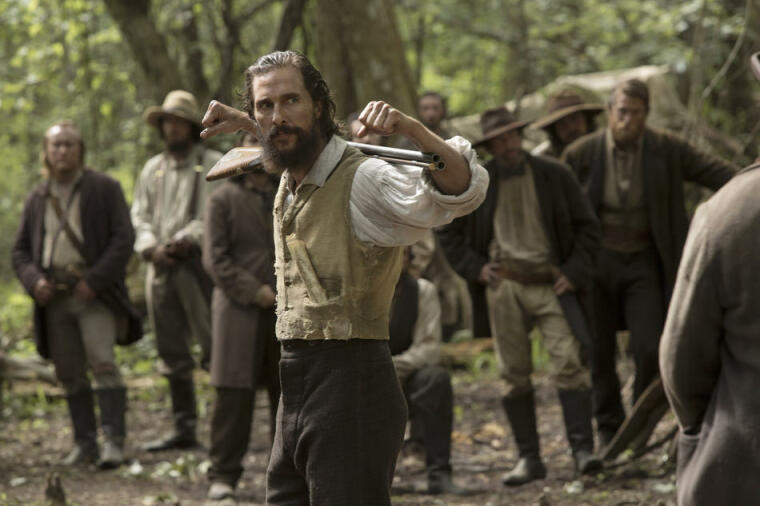Incredible, true Christian story behind 'Free State of Jones'

LOS ANGELES (Christian Examiner) – You won't find the name "Newton Knight" in many books about the abolitionists, and his story usually isn't told when accounts of Civil War valor are recounted.
But all that soon may be changing. This weekend a movie about Knight hits theaters, telling the incredible-but-true story of a Mississippi farmer during the Confederacy who turned against the South and led a rebellion alongside other farmers, soldiers and even slaves.
The movie is called Free State of Jones, which borrows its title from the name of the area around Jones County, Miss., that Knight and his backers named in defiance of not only Mississippi but also the Confederacy.
Knight (Matthew McConaughey) also was a Christian, and his faith is evident throughout the movie, which is rated R for brutal battle scenes and disturbing graphic images.
"He just had an inner compass that told him to do what was right and what was moral, and he acted on it," Gary Ross, the film's director, told the Christian Examiner. "That's what makes him an exemplary leader."
The movie challenges the conventional wisdom about the North-and-South divide during the Civil War and also showcases someone who Ross believes is an overlooked hero of history.
Ross is best known in Hollywood for being the director of The Hunger Games, Pleasantville and Seabiscuit.
The Christian Examiner interviewed Ross this week, asking him about Knight. Following is a transcript:
Christian Examiner: How did faith drive Newton Knight's actions?
Gary Ross: Christianity was an incredibly progressive aspect to the abolitionist movement in the 19th century. We think of things today in the strange kind of Left-Right era in America. But what people don't understand is how much of the abolitionist movement was rooted in Christianity, and that all of the abolitionists had a religious underpinning, no matter who they were. Newt also was a primitive Baptist, and primitive Baptists were ideologically opposed to slavery. So those things informed him. I wanted to be honest about that in the movie. There are certain things that one always tiptoes around in making movies. It's funny – people ask me about this, but I thought it was tremendously important to reflect his faith and be honest about that. Newt was a Christian. It was a time in America when people were very connected to their religion, and it absolutely informed his anti-slavery view.
CE: Would you call him an abolitionist?
Ross: The technical definition of abolitionism is someone who is opposed to slavery and actively promotes and fights for equality amongst the races. By the end of his life, absolutely he was an abolitionist. It's hard to see what he was when he began his rebellion, because all we know about his rebellion is it was an anti-tax rebellion that began for economic reasons. But if you look at Newt's behavior during Reconstruction, he burned down a school that would not educate mix-race children, he agreed to serve in a militia at the behest of progressive governor Adelbert Ames whose purpose was to protect the voting rights of African-Americans during Reconstruction. You see how he embraced fight for racial justice. By the end of his life, you absolutely would see him as an abolitionist.
CE: Lots of people will want to know more about the R rating. We're assuming it's rated R because of the violence?
Ross: It's not R rated because of language or sexuality or anything like it. The only issues, I think, are the violence. The Civil War was violent. It's really only the beginning of the movie that is very violent. I thought it was necessary to be honest about the era and what happened.
CE: What do you want moviegoers to take away from this movie?
Ross: That we won't make any progress in race in America until we see that there needs to be coalitions and alliances. He realized what was divided by race, could or should be united by class, and I think that was true then and I think that's true now. I hope the people take away the need for this kind of alliance, and I think that's important.
Michael Foust has covered the fillm industry for more than a decade. Follow him on Twitter @MichaelFoust